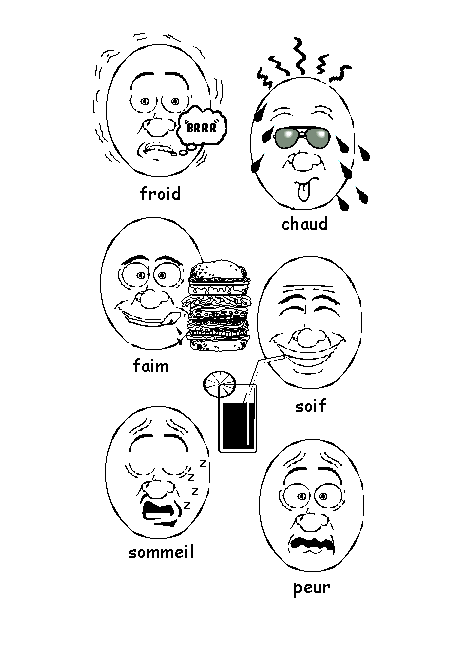French Level 1
Unité 12: Leçon 3b

|
Plus d'Émotions,
de Sentiments
et de Besoins
|
D'accord (O.K.)! Guess what? I have some more "emotions and feelings" for you along with some "needs" that we all have from time to time.
Let's say these together:
Plus d'Émotions,
de Sentiments et de Besoins
|
 Track 14 Track 14
I'm sure you noticed that the new words above have only one form (hey, I see that smile on your face!). The reason that there isn't two forms for these words has to do with the verb that we will be using for this leçon: "Avoir". Now I know what you must be thinking, "Hey dude, what's the catch?" Well, to be completely honest, this time there really is NO CATCH! While you're still smiling, I'll explain to you how this all works! Let's start with our two verbs, "Être" and "Avoir". The French word, "Être" means "to be" in English, so whenever we connect a word to "être" it is as though the subject of that connection, be it ourselves or someone else, becomes that word. Thus if I say, "Je suis content" (I am happy), and since I am a male, the word "content" must also be masculine since I am the word. However, when we use the verb, "avoir" which means "to have" in English, the subject does not become the word which follows. He or she only has the word. Now I know that this seems like a somewhat bizarre concept to English-speakers who always use the verb, "to be" and NOT the verb, "to have" to express feelings, needs, or emotions, but, as I have told you off and on throughout this course, there is more to language than simply words. Differing perceptions play a HUGE part in language and culture.
Let's move ahead to our next leçon and put this new verb into some phrases!
|
 Track 14
Track 14

